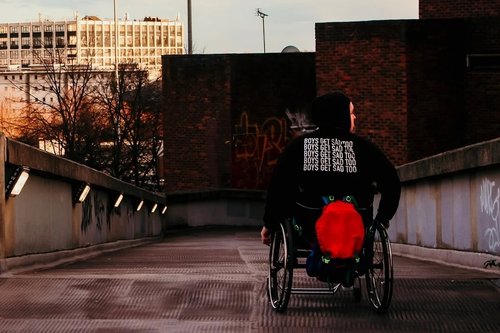The Great Rescission: can an employer revoke a job offer?
Nov 23, 2022
6 mins


US Editor at Welcome to the Jungle
Whether you’ve been inspired by The Great Reshuffle, or you’re looking to finally take a leap of faith and switch careers completely, finding yourself back on the job hunt comes with both anxiety and excitement. Receiving a long-awaited job offer could lift a huge weight off your shoulders, but what happens if, seemingly out of the blue, your future employer pulls the plug and revokes the offer?
Rescission of offer letters was a hot topic this summer. Seemingly overnight, the tech industry flipped from aggressive growth and hiring sprees to layoffs and hiring freezes. We then saw reports of tech giants like Twitter and Coinbase rescinding job offers in droves. According to Layoffs.fyi, a crowdsourced site that tracks tech layoffs, we’re seeing employee layoffs in Q4 of 2022 that are just shy of the numbers we saw in Q2 of 2020—the start of the pandemic. Other industries aren’t as heavily hit by this economic downturn and high inflation but are still seeing a decrease in hiring compared to the previous year. LinkedIn’s most recent workforce report shows that the elevated hiring in 2021 slowed by 5.3%. New York City saw a 6.4% decrease in hiring compared to last year.
So, if the company you’re applying for is experiencing hardships, are they legally allowed to rescind your job offer, even after both parties have signed? In short, yes, it’s legal. Let’s break it down.
What does ‘at-will’ employment really mean?
According to the National Conference of State Legislators, ‘at-will’ employment means “an employer can terminate an employee at any time for any reason, except an illegal one, or for no reason without incurring legal liability.” At-will also means that an employer can change the terms of the employment relationship with no notice and no consequences.
Montana is the only state in the US that’s entirely not at-will. All other states in the US have some version of at-will employment. Some states, including New York, have interpreted at-will employment to include the pre-start date period, meaning the rescission of a job offer may be deemed proper as long as it’s not discriminatory according to federal laws on equal employment.
So how does this rescission even happen, and what are your rights if the unthinkable happens? We spoke with Joel Winter, a Senior Manager of Talent Acquisition and the owner of WinterView Talent Solutions, with over 25 years of recruiting and consulting experience, to unpack this phenomenon.
Why would an employer rescind a job offer?
Winter stresses that “recruiters and the entire Talent Acquisition department work daily to make a match between candidate and company, develop an offer that will be accepted, and fill that vacancy. Rescinding an offer goes against every one of those purposes and instincts.” _However, many circumstances could lead to this unfortunate imbalance. Winter says that a job offer can be withdrawn for reasons that are both candidate-based, employer-based, or a combination of the two sides.
Employer-based withdrawl
- Hiring freeze/company finances: Staff reductions might happen unexpectedly due to changes in the company’s finances or overall market downturns. Unfortunately, you might have just been offered the job at the wrong time.
- Position evolves/reorganization: Particularly for newly-created positions, employers may discover how they originally conceived the position might not be ideal for their needs, revising the position or reorganizing the department.
Combination-based withdrawl
- Negotiation breakdown: Situations where the candidate thinks they’re significantly more valuable than the employer’s evaluations indicate, creating an imbalance. Such attempts at negotiation may have both parties so far off from each other that a resolution is implausible.
Candidate-based withdrawl
- Background checks: These checks are intended to verify that your past employment and education are, in fact, true. They can also verify criminal records and, in some instances, financial records. If a background check reveals information that a company deems inappropriate, it might rescind an offer.
- Positive drug test: A positive result could be a deal breaker for employers who conduct drug tests.
- Social media: Employers are now checking a candidate’s online presence and might find something they don’t like.
What are your rights as a New Yorker?
On top of the Federal laws forbidding discrimination in employment, the state of New York and New York City have some protections in place which make some of the reasons listed above illegal to rescind a job offer. The state of New York, for example, has extended the federal definition of discrimination to include the following cases:
- Gender identity and expression
- Status as a victim of domestic violence
- Sexual orientation
- Genetic characteristics or predisposition
- Marital status
- Familial status—note that New York City, partnership status is also a protected category by law
- Reproductive health decisions
- Protective hairstyles
- Educational institutions
- Prior arrest or conviction record
Beyond those laws, New York employers must also comply with state and local statutes, including New York State Human Rights Law (NYSHRL). New York City employers must comply with the New York City Human Rights Law (NYCHRL).
New York State Human Rights Law (NYSHRL)
The NYSHRL permits employers to conduct background checks but restricts how employers use this information in employment decisions. Employers can only inquire about convictions, not just arrests or charges that never led to a sentence.
It also prohibits employers from denying employment unless there is a direct relationship between the conviction and the intended employment, and granting the employment would involve an unreasonable risk to property or the safety and welfare of others.
This law would give the employee more rights if their offer were rescinded due to a criminal background check or other unlawful discrimination. This requires employers to analyze the conviction by applying factors outlined in Article 23-A of the New York Corrections Law.
New York City Human Rights Law (NYCHRL)
The NYCHRL takes the state law, beefs it up, and brings regulation closer to the local level for NYC residents and people employed in NYC. These Acts drastically limit or ban how an employer can use criminal convictions, credit checks, salary history, and marijuana use against the candidate during the hiring process and beyond.
New York City Fair Chance Act (NYCFCA)
The Fair Chance Act prohibits employers from conducting any background check that may concern criminal history until after a conditional offer of employment has been made. According to the Act, “ads, applications, and interview questions cannot include inquiries into an applicant’s criminal record.” This allows the applicant to be judged on their qualifications.
Suppose an employer wishes to take an adverse employment action after reviewing an applicant’s criminal history. In that case, there must be a direct relationship between the crime and the job or pose an unreasonable risk to people or property. Employers must make that determination based on specific factors outlined in the law and provide the candidate with a copy of their written analysis, a copy of the criminal background check, and an opportunity to respond.
Stop Credit Discrimination in Employment Act (SCDEA)
The SCDEA amends the NYCHRL by making it an unlawful discriminatory practice for employers to request or use the consumer credit history of a candidate to make any employment decisions, including hiring, compensation, and other terms and conditions of employment. In enacting the SCDEA, the New York City Council intended for it to “be the strongest bill of its type in the country prohibiting discriminatory employment credit checks,” as stated by Council Member Brad S. Lander during the legislation.
Salary history question ban
According to the government site, it’s “illegal for public and private employers of any size in New York City to ask about a candidate’s salary history during the hiring process, including in advertisements for positions, on applications, or in interviews.” This allows the employer and candidate to engage in salary negotiations focused on the applicant’s qualifications for the job to set a salary. This ban will help alleviate the perpetuation of lower wages, specifically for women and people of color. On January 6, 2020, this law was extended to the rest of New York state.
Pre-employment marijuana testing
As of May 10, 2020, covered employers are not permitted to test job candidates for marijuana or tetrahydrocannabinol (THC, the active ingredient in marijuana) as a condition of employment. This law became state-wide%20or%20other%20applicable%20laws.) in 2021.
What’s next if a job offer is rescinded?
Winter, who has reluctantly rescinded a few job offers throughout his career, does have faith in the system. “I view it as a question of ethics and the responsibility we bear as employers to treat candidates professionally, courteously, and in a manner to minimize or eliminate any harm on the candidate’s part, so any decision to rescind an offer has to be carefully considered as a last resort.”
When it comes to background checks, the best way to prepare is by being honest, both in your resume and application, as well as during the interview process. While a white lie on the extent of your responsiblities in a previous job could pass under the recruiter’s nose, faking your precious titles and education status can get you in real trouble.
There are also plenty of factors related to job offers that are simply out of your hands, so this experience just might be the time when you genuinely learn how to control the things you can and let go of the things you can’t. However, there are clear laws against discrimination. If you believe you are a victim of employment discrimination, seek a local employment lawyer to help you suss out the law and your potential next steps.
Winter declares one last important piece of advice: “It can happen. I advise candidates never to resign from their current position until all background checks are 100% complete—even if you think there’s no issue, odd things can happen, and you don’t need that heartache.”
Photo: Welcome to the Jungle
Follow Welcome to the Jungle on Facebook, LinkedIn, and Instagram, and subscribe to our newsletter to get our latest articles every day!

More inspiration: Job interview follow-up

Young parents: How to negotiate benefits with a potential employer
While ‘more sleep’ may not be on the table, there are plenty of parental benefits you can ask for from a new employer.
Dec 20, 2023

Accepting a job offer below your salary expectations: Is it a smart move?
After a grueling hiring process, you receive a sub-par offer. How do you handle it?
Nov 07, 2023

How to ask about disability accommodations in an interview
Here's to knowing what you're entitled to, and then getting it.
Oct 24, 2023

Exiting gracefully: Navigating a withdrawal from the hiring process
Not a good fit? Salary below expectations? Got a better offer? There are plenty of reasons to pull out of the hiring process. Here’s how to do it.
Oct 18, 2023

Job hunt: Here's what you can negotiate beyond salary
PTO, equity, health insurance, student loan repayment ... yes, please!
Sep 21, 2023
The newsletter that does the job
Want to keep up with the latest articles? Twice a week you can receive stories, jobs, and tips in your inbox.

Looking for your next job?
Over 200,000 people have found a job with Welcome to the Jungle.
Explore jobs